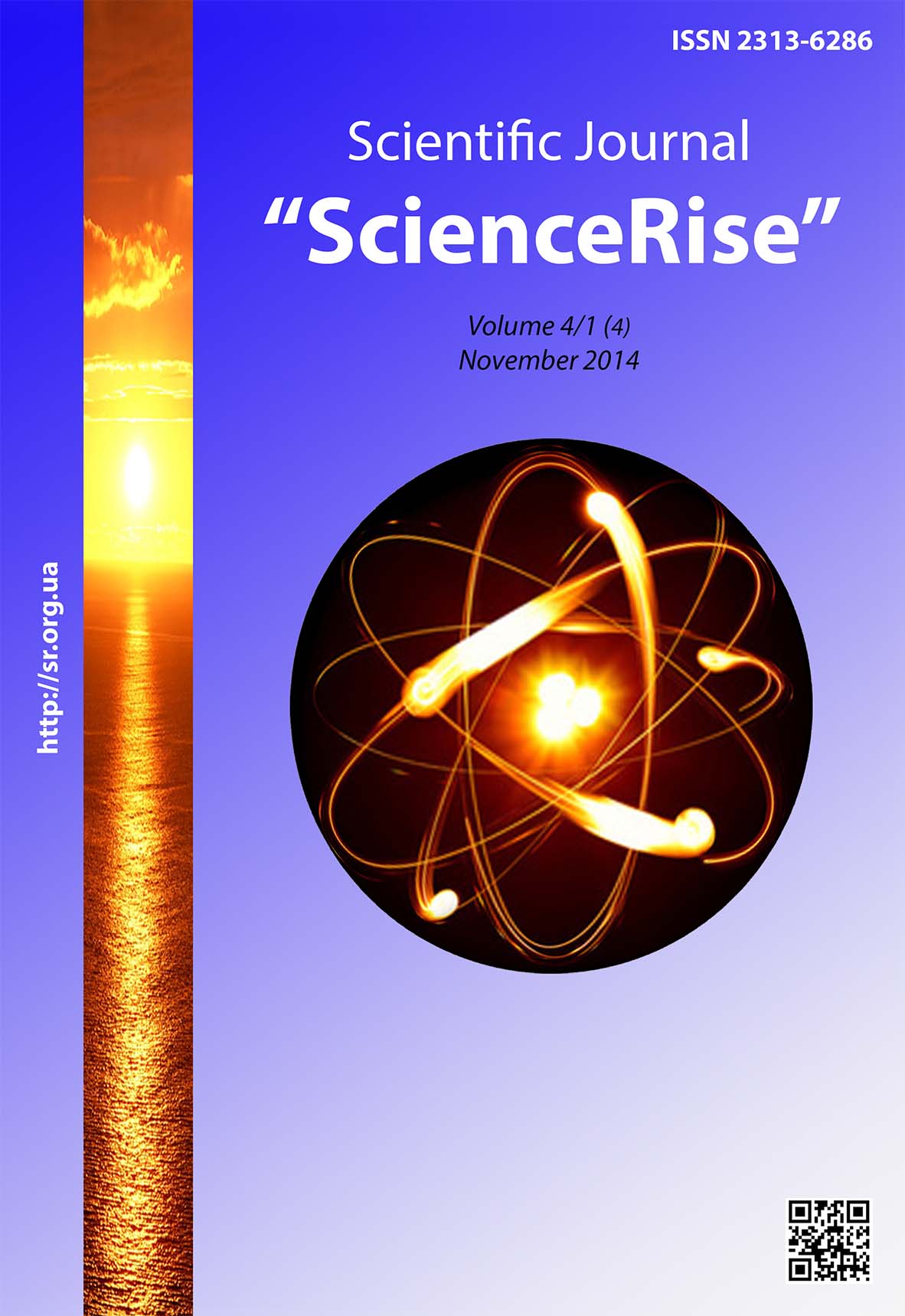The role of physical education classes in training of students of economics to professional activities
DOI:
https://doi.org/10.15587/2313-8416.2014.28354Keywords:
preparation tools, application skills, student of economics, professional activitiesAbstract
The role of physical education in training of students of economics to professional activities is considered. It is paid attention to the development and improvement of motor skills required to improve performance in the present conditions of labor economics. Complex exercises for prevention of diseases that arise when working in the financial sector are offered.
References
1. Hrynenko, M. F. (1974). Trud, zdorov'e, fyzycheskaia kul'tura [Employment, health, physical culture]. Moscow: Physical Education and Sports, 288. [in Russian].
2. Marakushyn, A. I. (2014). Prohrama navchal'noi dystsypliny «Fizychne vykhovannia» dlia studentiv usikh napriamkiv pidhotovky dennoi formy navchannia [The program of the course "Physical Education" for students of all areas of training, full time]. Kharkiv: Publishers KhNEU im. S. Kuznetsia, 10. [in Ukrainian].
3. Chumakova, R. S. (2003). Professyonal'no – prykladnaia podhotovka studentov [Professional – applied to prepare students]. Kyrov: Publishers ASA, 154. [in Russian].
4. Kukolevskyj, H. M. (1979). Zdorov'e y fyzycheskaia kul'tura [Health and physical education]. Moscow: Publishers Medicine, 192. [in Russian].
5. Tymushkyn, A. V. (2004). Fyzycheskaia kul'tura y zdorov'e [Physical Education and Health]. Balashov, 120. [in Russian].
6. Ulaieva, L. O. (2010). Metodychni rekomendatsii schodo rozvytku rukhovykh iakostej z navchal'noi dystsypliny «Fizychne vykhovannia» dlia studentiv usikh napriamkiv pidhotovky dennoi formy navchannia [Guidelines for the development of motor skills of discipline "Physical Education" for students in all areas of training, full time]. Kharkiv: Publishers KhNEU, 32. [in Ukrainian].
Downloads
Published
Issue
Section
License
Copyright (c) 2014 Лариса Александровна Улаева

This work is licensed under a Creative Commons Attribution 4.0 International License.
Our journal abides by the Creative Commons CC BY copyright rights and permissions for open access journals.
Authors, who are published in this journal, agree to the following conditions:
1. The authors reserve the right to authorship of the work and pass the first publication right of this work to the journal under the terms of a Creative Commons CC BY, which allows others to freely distribute the published research with the obligatory reference to the authors of the original work and the first publication of the work in this journal.
2. The authors have the right to conclude separate supplement agreements that relate to non-exclusive work distribution in the form in which it has been published by the journal (for example, to upload the work to the online storage of the journal or publish it as part of a monograph), provided that the reference to the first publication of the work in this journal is included.

